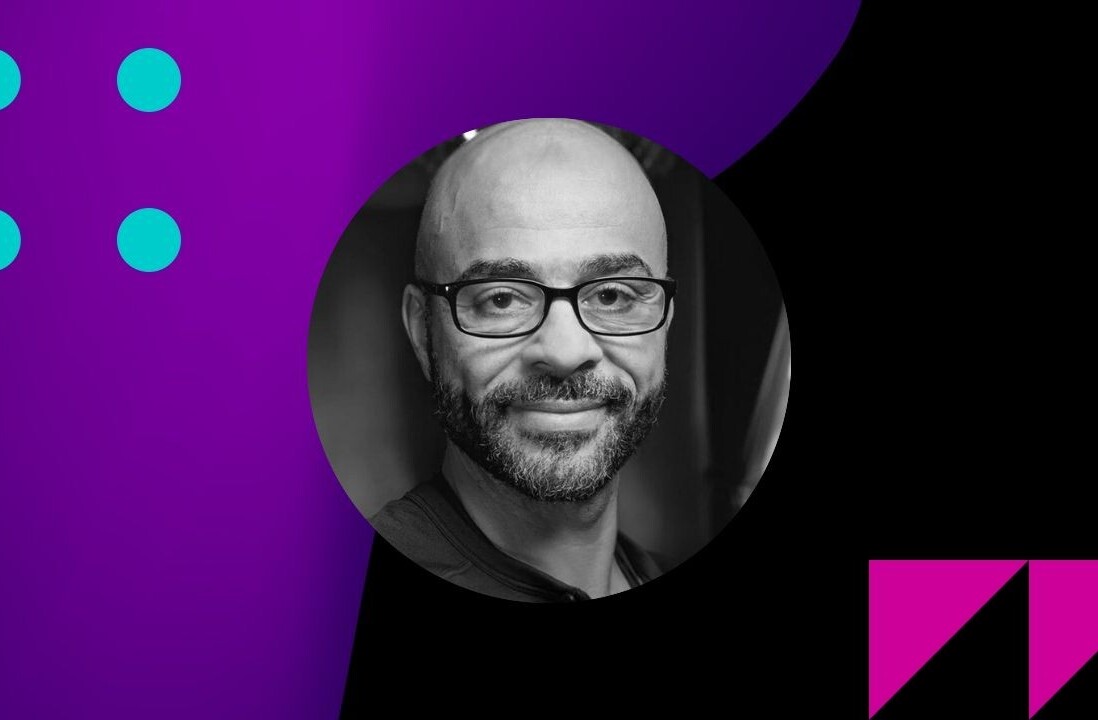
The Digital Hub Initiative’s Start-up Games Vol. 3 is fast approaching and ready to put the spotlight on ten up-and-comers.
If you haven’t heard about it yet, in 2017, the German Federal Ministry for Economic Affairs and Energy’s Digital Hub Initiative was set up to support the establishment of 12 digital Hubs across Germany. The Start-up Games is the event that brings together the most innovative startups from these Hubs to pitch their company in front of a distinguished panel of VCs.
But this year will be a little different. For the first time, the Games will be judged by an all-women panel of VCs.
For startups, the potential investment offered by VC firms is essential for growth, yet in 2020 European startups founded by women and mixed founding teams of both women and men only received 2.2% and 12.2% of total VC funding respectively. Meaning teams with all-men founders received a whopping 85.6% of funding. Could having more diverse VC panels make a difference?
Dr. Kim Zietlow, Director Trend & Innovation Scouting at Germany Trade & Invest, shared:
We chose an all-women jury to cater specifically to the needs of women founders, who often lack powerful, supportive networks. While the quality of their ideas and solutions may be equally high, women still receive fewer investment opportunities than men. We believe this panel of investors will be able to select the startup with the best potential.
We asked three startup leaders competing in this edition of the Start-up Games (who also happen to be women) about the challenges facing women entrepreneurs and how they felt about pitching to an all-women panel. Here’s what they had to say:
Johanna Riggers, CEO & founder of Kiezbringer Technologies
Johanna Riggers is ‘declaring war’ on the environmental pollution caused by online shopping and delivery. Her company, Kiezbringer Technologies, set to launch on June 28th, 2021 in Hamburg, will do this by slashing delivery times, while at the same time tackling the environmental impact caused by packaging waste and transport emissions.
Their marketplace platform allows users to select items from local businesses. Then their system of ‘pickers’ purchases the items and packs them in a reusable cloth bag. ‘Riders’ then transport the packages via climate-friendly cargo bikes, free of charge.
On top of her ambitious growth plans, Riggers also shared the personal motivation driving her forward.
I founded KiezBringer on my own in an industry that is mainly influenced by men. I want to become the first German unicorn that was founded by a woman and actively change the understanding of roles in a company.
When I asked her about the challenges facing women entrepreneurs, she said:
In my opinion, this is not just a challenge for the startup industry, but a fundamental issue in our economy. It’s related to the direct and indirect perception of the understanding of roles and how they’re presented by companies as well as society. We have to work together to empower women and to promote women role models. Awareness is key and should not be just a one-shot.
Indeed, an analysis conducted by Boston Consulting Group revealed that, if women and men participated equally as entrepreneurs, the global economy could receive a boost of between $2.5 trillion and $5 trillion. But just how can we make this a reality?
Every company and startup is responsible for finding solutions, regardless of quotas. At KiezBringer, this topic is important and we want to empower women to take the plunge and found their own company, alone or with others.
Riggers’ startup is focused on tackling diversity, not just in terms of gender, but also background. They’re now cooperating with the ‘School of Diversity’ project which aims to offer refugees employment opportunities.
When discussing whether improving the gender balance on startup competition panels and amongst VC firms could have an impact, Riggers said:
Definitely, it will make a difference, because every single change is so important and has an impact on our perception. I am not a big fan of quotas. The concept and the whole team should be the asset, regardless of gender, nationality, or age. We have to change the criteria for evaluation to make this possible. Nevertheless, starting with a quota could be a successful tool in the beginning, but should not be the solution.
I think it’s great and a step forward that we have an all-women panel of VC judges at the Start-up Games. We should create more awareness for this and communicate it as the new normal.
Eva Weber, CFO at Acalta
An anesthesiology physician, Eva Weber joined app-based patient care platform Acalta as CFO in 2019. Their solution “by doctors and for doctors,” was developed to boost patient satisfaction while alleviating physicians’ hectic time constraints. Acalta does this by providing a solution where care plans can be shared directly with the patient allowing them to take an active role in their treatment. This also enables clinics to collect data throughout the patient journey.
According to Weber, the challenge facing women leaders is about addressing deeply entrenched norms our society still holds on to.
Despite everyone being equal before the law, women still face different treatment than men since the norm we imagine as a society is still predominately male. A good example of this phenomenon was the funding of Pinky Glove, while a women-founded startup tackling the same problem (with a way better solution, by the way) did not receive venture capital a couple of years ago.
Pinky Glove is a startup founded by two men who created a pink disposable glove that could be used to cover up and dispose of used tampons. After appearing on Germany’s “Dragon’s Den” reality show, they received €30,000 from a man on the investor panel who liked the idea. The problem was, customers weren’t looking for a better way to dispose of their tampons, much less a more expensive pink version of a disposable glove (which you can already buy in stores everywhere).
Pinky Gloves (@pinky_gloves on Insta) is a German start-up ran by men who think menstrual blood is unclean and that gloves are necessary when changing tampons or pads.
Where do we even begin? There is nothing unhygienic about period blood. This is period shaming. pic.twitter.com/Cu8LdeH7qT
— Clue (@clue) April 15, 2021
Meanwhile, Ooia, a women-founded startup that developed ‘period pants’ which can be washed and reused, did not receive any funding after appearing on the show. Despite this, their product has found widespread success and they’ve since gone on to launch a line of nursing bras.
For Weber, the evidence is clear that greater diversity in teams and VC panels isn’t just a way to tackle discrimination, but also to significantly improve decision-making.
We know from studies that in a high-stress environment, like an operation room, gender-balanced teams perform better and have superior results compared to gender unbalanced teams. Personally, I see no reason why this should not apply in different settings like a competition panel.
I believe that gender-balanced and diverse teams which profit from a broader range of knowledge and experience will be more likely to choose the startups with better ideas instead of the ones conforming with their ‘male bubble’. And thus, giving women-led startups a fair chance.
Pia Schmitz, co-founder of HyLevio
Pia Schmitz is literally a high-flying startup entrepreneur with ambitions to completely disrupt the mobility industry. She co-founded HyLevio, a startup on a mission to eliminate unsustainable short-haul fossil-fueled aviation with the first hydrogen-powered, fixed-wing aircraft.
Schmitz shared that in the last months she’s spoken with many investors – only one of them was a woman:
Improving gender balance is important in every area. An all-women panel creates attention and is great to showcase that there are women VCs – however, an all-women panel also isn’t gender balanced.”
Indeed, while she agreed that this will be a good way to bring awareness to the issue, all-women panels won’t necessarily result in more fair and equal outcomes.
Studies show that women are actually just as biased as men when it comes to evaluating women-led startups. The real key is to ensure VCs are conscious of the impact that bias can have on decision-making and have the tools they need to overcome this natural tendency.
Luckily the panel for the Start-up Games is well versed in this area. For example, Janneke Niessen, co-founder of CapitalT, was one of the authors behind a 2018 study that revealed only 5.7% of VCs in the Netherlands, her home country, invest in startups with a woman co-founder. Meanwhile, fellow panelist Bettine Schmitz recently founded Auxxo, a women-focused fund.
Pia Schmitz admitted that self-doubt and a tendency to be less confident when promoting herself were a challenge in the past.
I believe that the challenges for founders, in general, are huge – no matter their gender. Building a company, convincing investors, and securing funding are challenges you don’t face in employment.
I always wanted to be an entrepreneur. But it’s a big step out of your comfort zone and you need a lot of courage to quit your well-paid job and move into an uncertain and unknown environment. Additionally, women face a lot of prejudices. In general, I think we don’t see enough women in leadership positions.
Imposter syndrome is a challenge that impacts many entrepreneurs (both men and women). However, speaking with the BBC, Emily Hu, a clinical psychologist in Los Angeles, stated that:
“We’re more likely to experience imposter syndrome if we don’t see many examples of people who look like us or share our background who are clearly succeeding in our field.”
What did help Schmitz overcome this was having a great support network around her.
Among my friends, there are many (women) entrepreneurs who encouraged me, and we support each other. Plus, there are so many great programs for startups to give guidance and mentor you. To increase gender balance, I believe there need to be more women role models in leadership positions, startups, and politics to inspire others to become entrepreneurs.
With the first prototype of HyLevio’s aircraft now in the works and getting ready to break boundaries in the mobility industry, Schmitz is set to become a role model herself for the next generation of founders.
On that note, I’m excited to hear more from these dynamic startup leaders and more during this edition of the Start-up Games. As a co-host, I’ll have the great pleasure of asking these entrepreneurs questions from you, our audience, during the event. So if you haven’t yet, sign up now!
Get the TNW newsletter
Get the most important tech news in your inbox each week.




